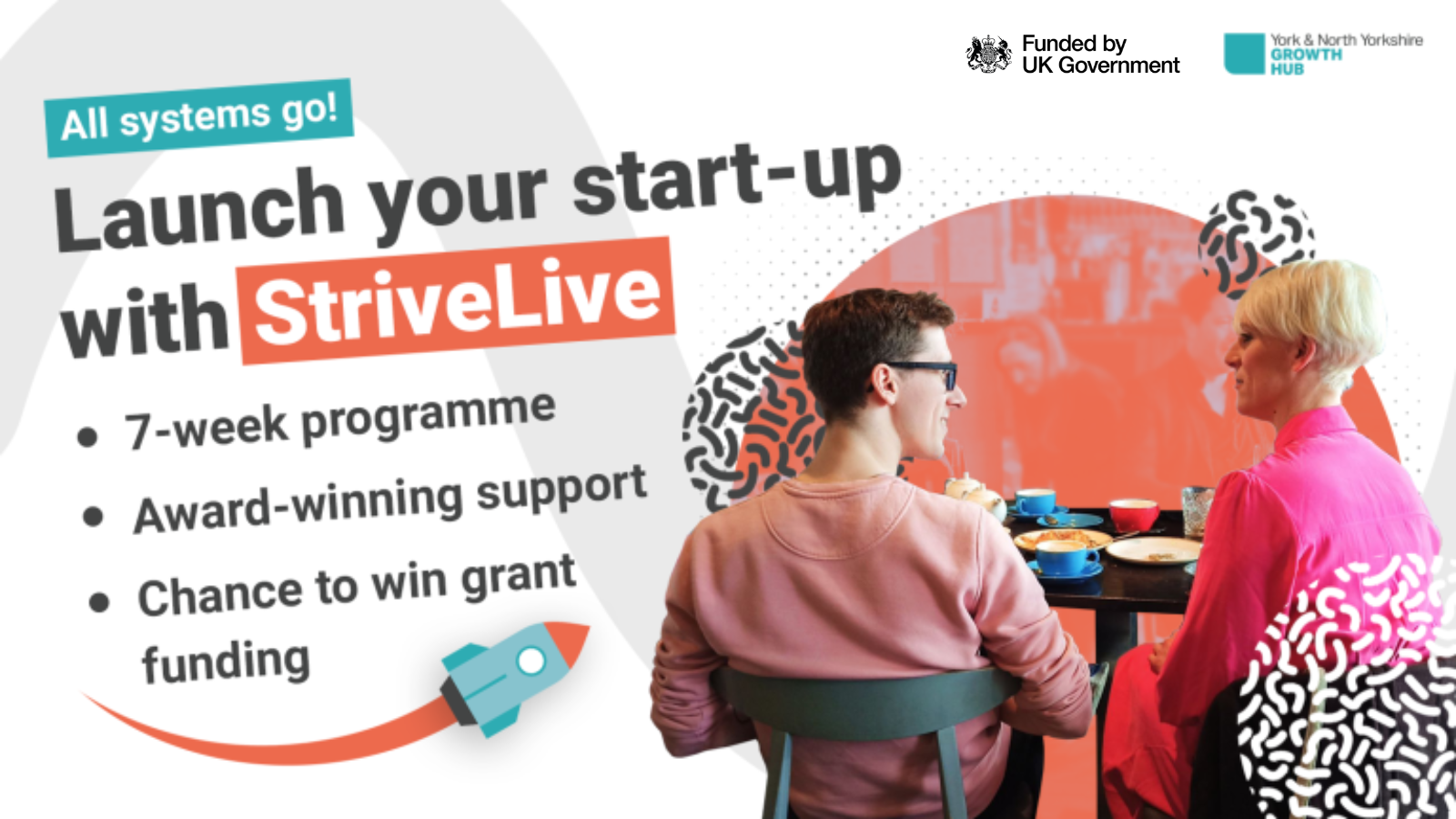
Finding a business mentor – and becoming one yourself
–
For many of us, starting a new business is a radical act of independence – the idea of finally being free of a boss and only answering to yourself. Making your own decisions. Doing things your way. So, asking for help from a business mentor – i.e. taking direction from someone else – might seem like the opposite of what you set out to do in the first place. But don’t write off the idea of seeking out a mentor just yet!
A mentor can give direction through complicated business matters as well as motivating you when the going gets tough. They can also act as a sounding board for new ideas, help develop new business skills and introduce you to new contacts who can help drive your business forward.
And perhaps encourage you to eventually become a mentor yourself…
What is mentoring?
Mentoring is accessing the knowledge and previous experience of others. Generally, a mentor for small business it is someone who can provide guidance and support having already been through the process themselves.
As well as being a motivator and a friendly listener, mentors can provide a range of encouragement and insight. Something we all often lack is focus and accountability. It is easy to get distracted from your aims and objectives, and this can then lead to becoming de-motivated and in turn end up in failure. If you have that someone on your shoulder, keeping you focused on your objectives, who you are accountable to, it can make the world of difference.
A mentor can help you see the wood for the trees, they can look objectively from the outside and see if those distractions are happening. A mentor often also runs a successful business themselves so have the type of experience to draw on that can help you transform your business.
Working for yourself can be very isolating. Friends and family, whilst helpful, may not always be truthful and tell you what you want to hear, not necessarily what you need to hear. A mentor can also take you out of your comfort zone, give you the confidence to take calculated risks, but also give that all important reality check if needed.
Statistics show that small businesses that receive mentoring survive for five years or more, which is double the rate of those who do not engage with a mentor.
Business mentors have done it all before
A business mentor has been there and done that, again and again. As well as the basic nuts and bolts of running a business, they know what makes a company succeed or fail – most likely because they’ve been involved in both at some stage in their career.
This insight is invaluable. There’s so much to cover when you’re starting a business, and there’s no shame in admitting that there often turns out to be far more involved than you ever imagined.
Whether it’s tightening up your business plan, jumping through the hoops of tax and insurance, or even ordering your pens, they’ll probably have a suggestion. They’ll ask the right questions to uncover the things you haven’t thought of, and help you push yourself to make your business the best success it can be.
Business mentors let you focus on what’s important to you
As the boss, it’s easy to get so wrapped up in the day-to-day work of running your business that you find yourself with less time to make things, less time to spend with clients or customers, or less time to go out on jobs – whatever it is that you love about what you do.
Although a business mentor isn’t just going to do it for you, their expertise and advice will make the whole process so much quicker and easier. When you think about it, it’s all about division of labour – let them help you with the things they know best, so you can focus on what you know best.
Business mentors offer an outside perspective
You understand what your business does and what your products are. But is it obvious to the rest of the world?
It’s incredibly easy to get wrapped up in a new business and lose sight of how it can be perceived from the outside. A mentor can offer that perspective, helping you see your company through the eyes of a customer, client, or even an investor.
A business mentor can provide mediation and solve disputes
OK, so maybe you’re not alone. You’re starting your business with a partner who’s going to handle the admin side and provide a sounding board for all of your ideas. They always think of the things you don’t, and that’s why you’re an awesome team.
So, what happens when you disagree? Just get on with it in a glowering silence? Fracture into two rival companies? Pursue ever-escalating legal action?None of these are healthy.
Mediating and solving disputes between business partners is perhaps one of the small business mentor’s most important jobs at first. Hearing both sides and offering an alternative view backed up by experience can smooth over disagreements before they blow up into something more.
A business mentor can provide personal support for business owners
Starting a business is hard work! There are times when it can take over your life, and your friends just aren’t going to want to hear about it anymore.
Having someone you can talk to about the personal side of running a business can be just as important as the admin, tax and HR side of things. A good business mentor will be able to lend an ear and offer emotional support – the pep talks you need to keep going, the tough talks you need when you’re losing motivation, and everything in between.
Business mentors provide networking opportunities
After years in the game, a business mentor is going to have a huge number of contacts. They might be valuable suppliers with great prices. They might be people who need the exact service you provide. They might be the host of a weekly networking session with excellent free coffee and a huge community of potential customers.
Many of these contacts and recommendations are likely to be a mentor’s former mentees – you’ll be on that list in future too. You never know what it might bring your way. Speaking of which…
So, how do you choose a business mentor?
First and foremost, you need a business mentor that you can get on with on a personal level, and that has your interests at heart. Someone who won’t shy away from the tough talk, of course, but is almost as passionate about your business as you are (at least!).
But beyond that personal connection, make sure you do your due diligence.
Understand their niche
There are a lot of different kinds of business mentors out there, all with different specialisms. These may be focused on a specific industry, a specific business size, or a specific business goal.
For example, some mentors will specialise in starting a business, while a business growth consultant will be focused on helping you grow – often with an eye on selling on your business within a certain number of years.
Make sure you find out (or just ask!) what their specialisms are and what they know about your industry.
Check their credentials
You should also be sure to investigate who they’ve worked with before. You’d hope there’d be more successful businesses in their portfolio than less-than-successful ones after all!
Many business mentors operate as businesses themselves so have a look at their reviews. They might have a website with testimonials and case studies, or social media pages with feedback – and, of course, there are Google reviews to explore!
Be sure to cast a further net, too. Have they published any books or articles that can help you get to know what they’re about, for example?
Watch out for bad apples
A portfolio of failures or a list of bad reviews aren’t the only red flags. As with any kind of mentoring, you will find people out to make a quick buck.
Keep an eye out for people who charge a lot of money up front – particularly if they’re trying to sell you guides or courses rather than their one-to-one time. If they’re targeting new business owners with high-pressure tactics, they should be avoided.
Seek out free support
There are a lot of business mentors out there who are willing to offer their time for free, and a variety of programmes and organisations that help provide this:
Be the Business (Matching small and medium business owners with experienced business leaders).
Digital Boost (One-to-one and group mentoring for small-business owners and start-ups).
Expert Impact (Mentoring for social entrepreneurs).
Hatch (Supporting entrepeneurs from under-represented groups in business).
Matchable (Mentoring for charities / impact start-ups).
And you can also talk to a York & North Yorkshire Growth Hub mentor to see how we can help – if our Business Relationship Managers can’t offer you the exact support you need, there’s a good chance they’ll have a great contact that they can introduce you to.
Got questions? Take a moment to get in touch and find out more about how we can help.
Learn more
What management and leadership training is available?
Articles
Strive Live Start-Up Incubator: March
If you are currently running or looking to launch a start-up based in York & North Yorkshire, join this award-winning incubator designed to help grassroots entrepreneurs launch their business. Strive Live blends weekly live online training with regular one-to-one advice and on-demand online learning to make it simple and exciting to start a business. Plus, you could win up to £2,500 in micro grants at the end of the programme.
Mentoring Programme Set to Strengthen Local Business
The Mentoring for Growth Programme is designed to support small businesses across York and North Yorkshire that are ready to grow, scale, and move confidently into their next stage. The pilot will match local business owners and leaders with mentors from outside their industry, helping them to develop the core, non-technical skills that underpin sustainable business growth.
Strive Live Start-Up Incubator: Expression of Interest
Interested in joining a future cohort of Stive Live Start-Up Incubator? Find out more about the programme below, and register your interest to secure the first places when dates are confirmed.
Events
03rd March 202611:00 am - 1:00 pmFREE
Online Workshops: Digital Marketing Success Series (Intermediate)
Join our Digital Marketing Success Series designed especially for small business owners who want to grow online, even if you don’t consider yourself “tech-savvy.” This weekly workshop series will guide you through the basics of digital marketing and on to more advanced strategies – all at your pace.
Resources
Communications for Small Businesses Series: Webinar Recordings
This webinar series will guide you through the steps needed to embrace communications for your business, in an authentic and impactful way.
Webinar Series: Set Up for Success with Google Business Tools
This series explores the free tools available from Google to help small businesses increase their online presence. Plus, you’ll learn how to leverage Google’s paid advertising platform for scalable growth without feeling like you are just wasting money. Participants will leave feeling confident to start using Google Tools to Improve their visibility, generate leads and make more sales online.
Webinar Recording: PR for Small Businesses
Want to get your business featured in newspapers and magazines in 2026? In this webinar, Jo and Linda explain why you should be prioritising PR – including reaching a new audience (outside your social media bubble), building trust and credibility, and boosting your sales and SEO.







